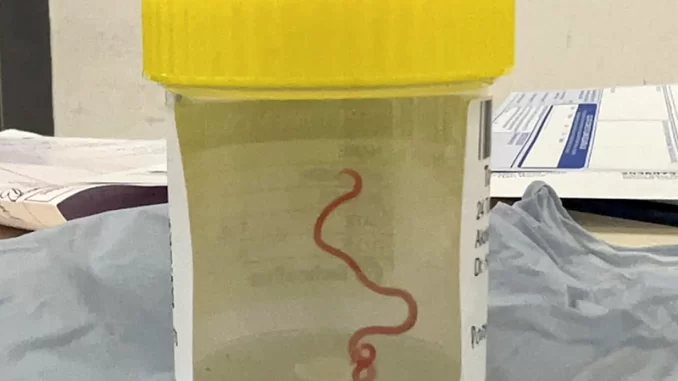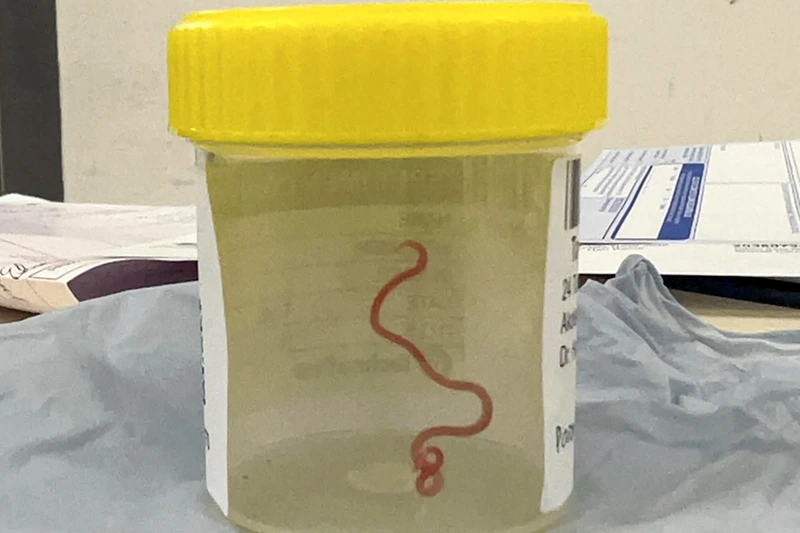

OAN’s James Meyers
2:34 PM – Tuesday, August 28, 2023
In a world-first discovery, doctors announced on Tuesday, a three-inch long parasitic worm was found in the brain of a 64-year-old Australian woman.
Advertisement
The infectious insect was pulled out of the woman’s frontal lobe during surgery in Canberra, Australia last year.
“It was definitely not what we were expecting. Everyone was shocked,” said operating surgeon Doctor Hari Priya Bandi.
The woman complained of having several symptoms such as fever, night sweats and dry cough.
She was placed in a hospital in January of 2021, an initial scan revealed she had “an atypical lesion within the right frontal lobe of the brain.”
After several months, her symptoms developed into depression and forgetfulness.
However, the parasite was only discovered by Dr. Bandi’s knife while performing a biopsy in June of 2022.
Doctors involved with the procedure believed the red parasite was alive in her brain for almost two months.
Additionally, once the worm was pulled out, molecular tests confirmed the parasite was a Ophidascaris robertsi, which is a roundworm commonly found in pythons, according to a press release from the Australian National University and the Canberra Hospital.
Carpet pythons in Australia carry the Ophidascaris robertsi and shed parasite eggs in their feces, which spreads through vegetation that mammals and marsupials eat.
According to Canberra Hospital infectious disease expert Sanjaya Senanayake, the woman was an accidental host of the worm and the parasite was present in other organs in the patient’s body, including the lungs and liver.
Experts believed she caught the roundworm by collecting a type of native grass near an area inhabited by carpet pythons.
This case is the first instance of a larvae invasion and development in the human brain, according to researchers from the Emerging Infectious Diseases Journal.
The woman is currently recovering well, according to doctors.
Stay informed! Receive breaking news blasts directly to your inbox for free. Subscribe here. https://www.oann.com/alerts

